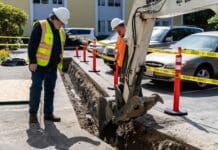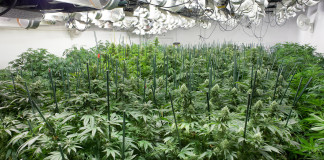Are you about to embark on the exciting journey of renting your first apartment? Renting is an incredible feeling of freedom, but it can also be a highly stressful experience if you don’t have all the necessary things in place before moving in. From understanding your lease agreement and budgeting for upfront costs and monthly bills, several important factors need to be taken into consideration when looking for a rental property. In this blog post, we’ll break down everything you need to know before signing a lease so that you can enter into your new living situation with peace of comfort in the knowledge that nothing has been overlooked.
Make Sure You Are Insured
One crucial aspect of renting that mustn’t be overlooked is the need for insurance. Renter’s insurance is designed to protect you financially in the event of unexpected circumstances such as theft, fire, or water damage. Your landlord’s insurance typically only covers the structure of the building, not your personal belongings inside. Plus making sure you have tenant insurance can significantly reduce the stress and financial burden in case of an emergency. Many insurance companies offer affordable policies specifically designed for renters, so it’s worth looking into.
Documentation is Key
Another crucial step when renting is to keep track of all paperwork related to your tenancy. This includes your lease agreement, rent payment receipts, insurance documents, and any correspondence with your landlord. It’s always a good idea to request any important communication in writing for record-keeping purposes. If any disputes arise, these documents can serve as evidence. A good practice is to have a dedicated folder—physical or digital—for all these documents. Remember, staying organized is an essential part of a smooth renting experience.
Detailed Property Inspection
Conducting a detailed inspection of the prospective rental property is another indispensable step in the renting process. This involves examining the condition of the apartment or house carefully, checking everything from the functionality of appliances to the state of the flooring, plumbing, and electrical systems. It’s also prudent to check for signs of mold, pests, or any safety issues like loose railings or damaged staircases. Document any pre-existing damages or issues and report them to your landlord before moving in to ensure you won’t be held responsible when moving out. Additionally, be sure to understand the maintenance responsibilities specified in your lease agreement. Who will be responsible for minor repairs or major system breakdowns? Knowing this ahead of time can prevent misunderstandings and unexpected expenses in the future.
Emergency Contacts
Establishing a list of emergency contacts is another vital step in the renting process. Firstly, ensure that you have the phone number of your landlord or property manager on hand for any immediate property-related concerns. Next, you should also have contact information for local emergency services such as police, fire department, and hospital. If there are property-specific services such as a maintenance crew or security desk, be sure to include those as well. Remember, in case of an emergency, every second counts, and having this information readily accessible can make a significant difference. A good practice is to save these numbers in your phone and keep a printed list in a prominent location in your home.
In conclusion, renting a property is an exciting new chapter, but it’s essential to have all the necessary things in place before moving in. From understanding your insurance needs and keeping track of documents to conducting thorough inspections and establishing emergency contacts, these steps can ensure a smooth and stress-free renting experience. So go ahead and start planning for your new life as a renter with confidence!










